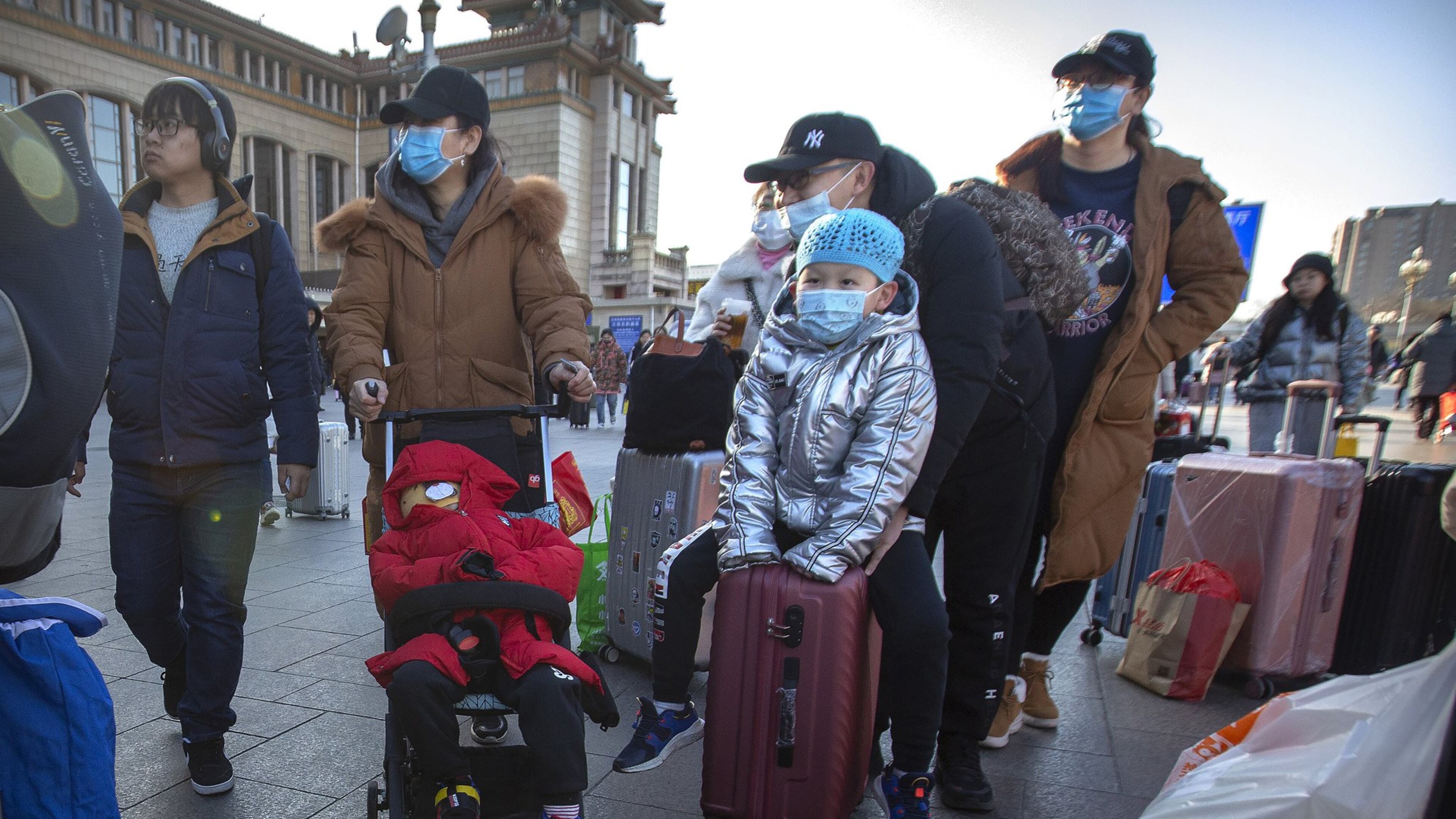Atlanta airport begins screening after first U.S. case of coronavirus

Health authorities said Tuesday that they’ll start screening passengers who arrive at Hartsfield-Jackson International Airport from China, where a mysterious coronavirus has killed six people and sickened hundreds.
The Centers for Disease Control and Prevention's announcement came as it confirmed the first case of the virus in the United States. A man who had traveled to Wuhan, China — where the outbreak began — is now hospitalized in Washington state.
Coronaviruses can cause respiratory illness that ranges from mild, with fever and coughing, to severe, with pneumonia, severe acute respiratory syndrome, kidney failure and death.
Last week, the CDC started public health entry screenings at San Francisco International, New York's John F. Kennedy International and Los Angeles International airports. This week, in addition to Atlanta, CDC also added health screenings at Chicago O'Hare. The CDC said all those traveling from Wuhan to the U.S. are now being rerouted to those five airports.
Hartsfield-Jackson International spokeswoman Elise Durham said the airport is working with its partners at U.S. Customs and Border Protection and the CDC. The CDC will set up in the international terminal to process “passengers who exhibit severe symptoms or who may have come in contact with the disease,” according to Durham.
The only nonstop route to Atlanta from China is a Delta Air Lines flight from Shanghai, a route the airline relaunched in 2018. However, there are other flights from Asia to Atlanta that may have passengers connecting from China, including flights from Seoul and Tokyo.
While Hartsfield-Jackson is the world’s busiest airport, other airports on the West Coast are gateways to Asia, and JFK is served by numerous carriers with routes from Asia.
Early on, many of those sickened in the outbreak in Wuhan were reportedly linked to a large seafood and animal market, suggesting animal-to-person spread. However, a growing number of patients have told health authorities that they did not visit the markets, suggesting the virus is being spread person to person, according to the CDC. Right now, the CDC said it’s unclear exactly how this particular coronavirus is spreading between people, and how contagious it is.
Human coronaviruses are usually spread through the air by coughing and sneezing or by human-to-human contact, according to the CDC.
In the only confirmed case in the U.S., a man in his 30s returned home from a trip to Wuhan on Jan. 15, arriving at Seattle-Tacoma International Airport before any health screenings began at U.S. airports. He became symptomatic Sunday and was diagnosed Monday. Officials said the man was in good condition.
MORE: What is the Wuhan coronavirus?
He indicated he had not visited the large seafood and animal market in Wuhan, and it’s unclear how he was exposed to the virus.
While the CDC considers this a serious public health concern, the agency said the health risk to the general American public is considered “low at this time.”
The virus has spread from Wuhan to other parts of China, and a handful of cases also have been diagnosed in Thailand, South Korea and Japan.
There is no vaccine for coronavirus, but medical experts said there’s no reason to panic.
In the U.S., screening, training and preparations to treat emerging diseases are better than ever, driven by concerns about infections such as SARS and Ebola, said Dr. Aneesh Mehta, an associate professor of medicine in the Division of Infectious Diseases at Emory University School of Medicine.
He said the Georgia Department of Public of Health has been providing daily updates on the new coronavirus. Emory’s infection control team has alerted clinicians throughout the hospital to stay vigilant in looking out for symptoms of the virus and to ask about any international travel.
And the public should keep doing what it should always be doing at this time of year, he said.
“What this highlights, as we are in the middle of the flu season, is good hand hygiene,” said Mehta. “Cleaning your hands is good for preventing flu, and it’s can also likely prevent something like this.”
Why it matters
The U.S. has joined a growing list of places outside mainland China reporting cases of a new coronavirus.
- The newly discovered virus has killed six people and infected about 300 people in China, and a handful of cases also have been diagnosed in Thailand, South Korea and Japan.
- The virus can cause coughing, fever, breathing difficulty and pneumonia.



